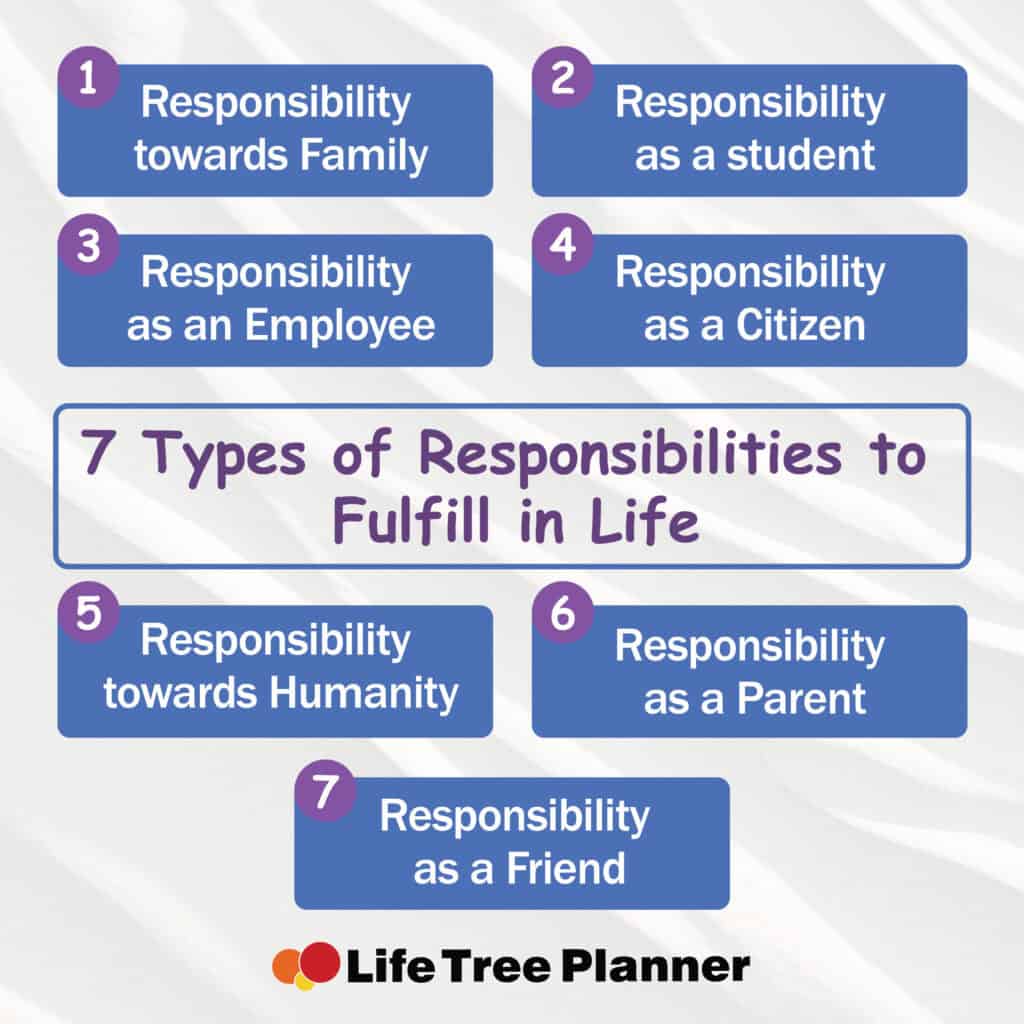
Feeling overwhelmed by the never-ending list of chores and administrative tasks? You’re not alone. Many of us struggle to manage responsibilities efficiently, leading to stress and burnout.
Imagine effortlessly juggling chores, health, and administrative duties, creating a harmonious and organized environment for yourself and your family. Sound too good to be true?
We understand the complexities of daily responsibilities and the toll they can take. With our experience and practical strategies, we’re here to help you streamline your chores and administrative tasks, making your life more manageable and fulfilling.
In this article, we’ll share 10 actionable tips to boost your efficiency. From creating a chore schedule to incorporating self-care routines, our plan is designed for your success.
Ready to take control and transform your daily routine? Let’s dive into strategies that will lead you to a more organized and stress-free life.

By the end of this article, you’ll have a clear roadmap to:
- Distribute tasks fairly with a chore schedule.
- Stay on track with chore management apps.
- Prioritize health through regular checkups and self-care.
- Handle administrative and financial tasks efficiently.
- Create a supportive family environment with effective communication.
- Optimize time and energy with realistic goals and time management techniques.
- Foster a harmonious home by managing stress and encouraging positivity.
- Adapt to changes and challenges with resilience.
- Celebrate your successes to stay motivated.
- Embrace sustainability with environmental and ethical practices.
- What is Responsibility?
- 10 Tips for Streamlining Chores and Administration
- 1. Efficient Chores Management
- 2. Health and Well-Being Responsibilities
- 3. Handling Administrative and Financial Tasks
- 4. Family Responsibilities
- 5. Optimizing Time and Energy
- 6. Harmonious Home Environment
- 7. Adapting to Change and Challenges
- 8. Celebrating Success and Progress
- 9. Cooking Responsibilities
- 10. Environmental and Ethical Responsibilities
- 7 Types of Responsibilities to Fulfill in Life
- 3 Key Strategies to Improve Personal Responsibility
- What is Personal Responsibility?
- What is self-care responsibility?
- Mastering Responsibilities: A Recap
See also Stay at Home Mom Responsibilities: 8 Duties and Essential Tips
What is Responsibility?

Responsibility is the obligation to complete tasks and meet expectations within defined roles. It involves understanding what one is supposed to do and taking ownership of those tasks.
In a professional setting, responsibility is vital for leadership and teamwork, as it ensures each team member contributes to operational efficiency.
Job titles and team roles often define a person’s responsibilities, which can develop over time as individuals gain experience. Clearly defining responsibilities is a sign of good management and is crucial for career and wealth growth.
On a day-to-day basis, being responsible means reliably fulfilling duties, benefiting both the individual and the organization by maintaining order and achieving goals efficiently.
10 Tips for Streamlining Chores and Administration
1. Efficient Chores Management

Efficient chore management involves recognizing and accepting responsibilities while fostering a culture of shared accountability within the family.
- Implement a Chore Schedule: Assign specific chores to family members and rotate responsibilities to ensure fairness. For example, each family member can take turns cleaning the house and making fresh foods every week.
- Use Chore Management Apps: Apps like Todoist or Trello can help keep track of chores and ensure everyone is on the same page.
- Prioritization and Organization: Create a detailed task list. Focus on cleaning the house and making food weekly, while also handling accounting tasks.
2. Health and Well-Being Responsibilities

Maintaining health and well-being involves proactive management of both physical and mental health.
- Schedule Regular Health Checkups: Plan appointments for dental visits and medical checkups, such as physical exams and dentist visits.
- Incorporate Exercise and Self-Care: Integrate activities like yoga, walking, or meditation into your daily routine to maintain mental and physical health.
- Proactive Health Management: Complete medical checkups early to ensure early detection and prevention of any health issues.
3. Handling Administrative and Financial Tasks

Administrative and financial tasks range from everyday chores to critical legal obligations.
- Using Tools for Task Management: Use calendars and to-do lists to keep track of tasks like renewing your driver’s license and starting the passport process.
- Financial Administration: Create a budget to manage income and expenses effectively. Allocate time for tax preparation and other financial duties.
- Legal Compliance: Ensure compliance with legal requirements like obtaining necessary documents.
4. Family Responsibilities

Balancing family responsibilities requires effective communication and task management.
- Distribute Household Duties: Share responsibilities such as cleaning the house and making fresh food among family members.
- Open Communication: Regular family meetings to discuss tasks and responsibilities can ensure everyone is on the same page.
- Create a Supportive Environment: Encourage each family member to contribute, fostering a sense of ownership and pride.
See also Life Planning Tools: 10 Must-Have Items for a Productive Life Plan
5. Optimizing Time and Energy

Optimizing time and energy involves setting realistic goals and implementing efficient management techniques.
- Set Clear Goals: Break down goals into manageable tasks. For example, write personal tasks every week.
- Time Management Techniques: Use the Pomodoro Technique or time blocking to enhance productivity. Allocate specific times for chores, like cleaning the house and making food weekly.
- Balance Work-Life Dynamic: Strive for a balanced routine to prevent burnout. Focus on cleaning the house, making food, handling accounting, and writing personal tasks.
6. Harmonious Home Environment

Creating a harmonious home environment involves managing stress and fostering positive interactions.
- Implement Self-Care Routines: Encourage activities that reduce stress, such as regular exercise or hobbies.
- Develop Conflict Resolution Strategies: Address disagreements constructively to maintain harmony.
- Foster a Positive Atmosphere: Regular family activities and open communication can create a supportive environment.
7. Adapting to Change and Challenges

Adapting to change and challenges requires resilience and proactive strategies.
- Engage in Resilience-Building Activities: Mindfulness and problem-solving exercises can help.
- Seek Support: Rely on family, friends, or professional networks during challenging times.
- Stay Informed: Continuously learn and update your skills to adapt to new situations.
8. Celebrating Success and Progress

Acknowledging and celebrating achievements is crucial for motivation and self-esteem.
- Express Gratitude: Recognize and celebrate both small and large achievements. For example, celebrate completing the documentation process or achieving health checkup milestones.
- Reflect on Progress: Regularly review and set new goals to maintain momentum.
9. Cooking Responsibilities

Cooking responsibilities involve meal planning, grocery shopping, and ensuring a balanced diet.
- Plan Meals in Advance: Save time and ensure nutritional balance by planning meals weekly.
- Create Detailed Grocery Lists: Streamline shopping trips to avoid missing essential items.
- Nutritional Awareness: Stay informed about dietary needs to make healthy choices.
10. Environmental and Ethical Responsibilities

Taking responsibility for environmental and ethical practices is crucial for sustainability.
- Adopt Responsible Practices: Reduce waste, recycle, and conserve resources.
- Align Actions with Ethical Standards: Make decisions that support sustainability.
- Advocate for Sustainable Practices: Encourage your community to adopt environmentally friendly practices.
7 Types of Responsibilities to Fulfill in Life

1. Responsibility towards Family

Family responsibilities encompass providing emotional support, financial assistance, and nurturing relationships within the family unit. It involves being present for family members during both joyful and challenging times, ensuring a supportive and loving environment.
Examples:
- Regularly spending quality time with family members.
- Helping with household chores and responsibilities.
- Contributing financially to family needs and obligations.
- Offering emotional support during crises or hardships.
- Planning and organizing family gatherings and celebrations.
2. Responsibility as a Student

As students, individuals are responsible for dedicating themselves to learning and growth. This includes active participation in educational activities, seeking knowledge, and striving for academic excellence.
Examples:
- Attending classes regularly and actively engaging in discussions.
- Completing assignments and studying consistently.
- Seeking out additional learning opportunities outside the classroom.
- Participating in extracurricular activities to broaden skills and experiences.
- Setting academic goals and monitoring progress towards achieving them.
3. Responsibility as an Employee

In the workplace, employee responsibility entails meeting job expectations with dedication and professionalism. It involves collaborating effectively with colleagues, demonstrating reliability, and contributing positively to the organization’s success.
Examples:
- Meeting deadlines and delivering high-quality work.
- Communicating effectively with team members and supervisors.
- Adhering to company policies and procedures.
- Taking initiative to solve problems and improve processes.
- Continuously updating skills to stay relevant in the job role.
4. Responsibility as a Citizen

Citizenship responsibilities involve active participation in civic duties and contributing to the welfare of the community and nation. It includes voting responsibly, staying informed about societal issues, and engaging in community service.
Examples:
- Educating oneself about local and national political issues.
- Participating in community clean-up or volunteer events.
- Supporting local businesses and initiatives.
- Respecting and obeying laws and regulations.
- Voicing opinions through constructive feedback and advocacy.
5. Responsibility towards Humanity

Responsibility towards humanity extends beyond immediate communities to compassionately addressing global challenges. It involves supporting humanitarian causes, promoting equality and justice, and advocating for sustainable practices.
Examples:
- Donating to charities that support underprivileged communities.
- Participating in international relief efforts during crises.
- Supporting environmental conservation initiatives.
- Advocating for human rights and social justice issues.
- Raising awareness about global health and education disparities.
6. Responsibility as a Parent

Parenthood carries the responsibility of nurturing and guiding children towards becoming responsible adults. It includes providing emotional stability, instilling values, and fostering a supportive environment for growth.
Examples:
- Spending quality time bonding with children through activities.
- Teaching essential life skills such as decision-making and problem-solving.
- Setting and enforcing rules and boundaries with consistency.
- Attending school events and parent-teacher meetings.
- Being a positive role model through actions and behaviors.
7. Responsibility as a Friend

Friendship responsibilities involve building trust, offering emotional support, and maintaining loyalty in relationships. It includes being present during times of need and celebrating achievements together.
Examples:
- Listening actively and providing empathetic support.
- Offering help and assistance without expecting anything in return.
- Respecting boundaries and confidentiality in conversations.
- Being honest and trustworthy in all interactions.
- Celebrating milestones and special occasions together.
See also Setting Goals at Work: 7 Proven Strategies for Your Success
3 Key Strategies to Improve Personal Responsibility

1. Set Realistic Expectations
Having realistic expectations is crucial. Life is unpredictable, so embrace imperfections and learn from setbacks. Focus on what you can control to improve your life.
Examples:
- Setting achievable goals instead of aiming for perfection.
- Accepting that mistakes are opportunities for growth.
- Communicating openly and setting realistic timelines in relationships.
2. Cultivate Healthy Habits

Developing healthy habits supports personal responsibility. These habits structure your life, increase productivity, and enhance overall well-being.
Examples:
- Establishing a regular exercise routine for physical fitness.
- Practicing mindfulness or meditation to reduce stress.
- Maintaining a balanced diet to support energy and focus.
3. Practice Self-Reflection
Allocate time for self-reflection to deepen self-understanding. Reflect on past experiences to learn, grow, and make responsible choices.
Examples:
- Journaling daily thoughts and emotions to track personal growth.
- Reviewing achievements and setbacks to identify patterns of behavior.
- Seeking feedback from mentors or trusted individuals for different perspectives.
What is Personal Responsibility?

Personal responsibility involves individuals taking ownership of their actions, decisions, and well-being. It means fulfilling job responsibilities and adhering to the job description, which is crucial during the hiring process to ensure candidates understand their clear roles within a company.
Personal responsibility extends to maintaining work-life balance and practicing the art of self-care, contributing to overall wellness. In a team setting, it helps leadership and reliability, ensuring that each member of the team meets their obligations.
This, in turn, benefits the company by promoting operational efficiency and a harmonious work environment. Personal responsibility is a sign of maturity and professionalism, defining an individual’s commitment to their position and team.
Here is a list of personal responsibilities:
- Environmental Stewardship – Being mindful of and reducing one’s environmental impact.
- Time Management – Prioritizing tasks and managing time efficiently to meet deadlines and balance work and personal life.
- Financial Management – Budgeting, saving, and responsibly money management.
- Health and Wellness – Maintaining physical and mental health through regular exercise, a balanced diet, and self-care reminders.
- Ethical Behavior – Acting with integrity and honesty in both personal and professional situations.
- Continuous Learning – Pursuing personal and professional growth through education and skill development.
- Household Duties – Managing and performing daily, weekly chores list and responsibilities at home.
- Relationship Maintenance – Building and nurturing healthy relationships with family, friends, and colleagues.
- Work Accountability – Fulfilling job duties and responsibilities reliably and with dedication.
- Community Involvement – Participating in community activities and contributing to societal well-being.
What is self-care responsibility?

Self-care responsibility involves taking proactive steps to maintain one’s physical, mental, and emotional well-being. It’s a vital aspect of overall success, ensuring operational efficiency in both personal and professional life.
Leaders should emphasize the importance of self-care in training and processes, providing a self-care planner and resources to new hires. Role clarity and well-defined individual roles help in understanding how self-care fits into daily routines.
Encouraging self-care promotes a culture where multiple people support each other, boosting talent retention and satisfaction.
Successful self-care checklist template benefits not just the individual but also contribute to the collective success of teams, highlighting the significance of self-care responsibility in achieving optimal performance and well-being.
Here are some self-care responsibilities:
- Self-Management: Take proactive steps to manage chronic conditions and maintain health through medications, lifestyle changes, and regular medical consultations.
- Physical Health: Regular exercise, balanced diet, and sufficient sleep to maintain overall well-being.
- Mental Health: Practice mindfulness, meditation, and stress management techniques to maintain mental balance.
- Emotional Health: Engage in activities that bring joy and relaxation, and seek support when needed.
- Professional Development: Continuously improve skills and knowledge to enhance career growth and job satisfaction.
- Regular Check-ups: Schedule and attend regular medical and dental check-ups to prevent health issues.
- Setting Boundaries: Define and maintain healthy boundaries to avoid burnout and maintain personal space.
- Financial Health: Manage finances wisely to reduce stress and ensure future stability.
- Social Connections: Maintain and nurture relationships with family, friends, and colleagues for a supportive network.
- Personal Growth: Engage in hobbies, pursue interests, and set personal goals to foster a sense of achievement and fulfillment.
- Making Healthy Lifestyle Choices: Prioritize healthy eating, regular exercise, and sufficient sleep for overall well-being.
- Avoiding Unhealthy Lifestyle Habits: Steer clear of habits such as smoking, excessive drinking, and poor diet choices to maintain good health.
- Self-Recognition of Symptoms: Be aware of and recognize early symptoms of health issues to seek timely medical attention.
- Self-Monitoring: Regularly check and monitor health metrics such as blood pressure, weight, and mental health status.
See also Career or Relationship: 6 Steps for Finding a Right Balance
Mastering Responsibilities: A Recap
In conclusion, understanding and assigning responsibilities is crucial for effective life planning and team efficiency. Differentiating chores vs responsibilities helps individuals and teams achieve clarity in their roles.
Clear job descriptions and defined roles within a team ensure that every team member knows their duties, which enhances the hiring process and overall team performance.
Senior employees play a pivotal role in this by guiding and defining roles for the entire team, ensuring that each employee’s job title and responsibilities are well understood.
By assigning and defining responsibilities, teams can form a cohesive unit where every member contributes to the collective goal, leading to a more organized, efficient, and successful work environment.


